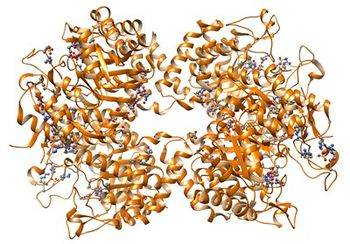
Malvern Instruments will contribute a scientific poster at the 2014 Protein-Protein Interaction Conference, October 23-24, Boston, MA, USA. The poster describes new work on rheological approaches to protein stability studies during biologics formulation and will be presented by Matt McGann, Malvern Instruments Life Science Sales and Application Specialist for the Americas.
The study of rheology in protein formulation and biotherapeutic development is considered to be a developing and ultimately essential measurement. The Malvern presentation ‘Characterizing the stability of protein solutions using rheological techniques’ outlines the approaches required to characterize the total rheological properties of a protein formulation. This includes rotational rheology, capillary viscometry and Dynamic Light Scattering (DLS) microrheology. Data are compared with those from other widely used analytical techniques for protein studies, such as DLS and Gel Permeation Chromatography (GPC), to illustrate that rheological properties are useful predictive measures of formulation stability.
Capillary microviscometry is a technique that is well-suited for high throughput screening studies, while rotational rheology and DLS microrheology are more applicable for determining the viscoelastic properties of non-Newtonian fluids, as they are able to interrogate a wide range of shear rates and angular frequencies. In combination, these techniques generate a comprehensive rheological profile for a protein formulation during early phase screening. This has proven a valuable guide for predicting the stability, and hence suitability, of a biotherapeutic target.
